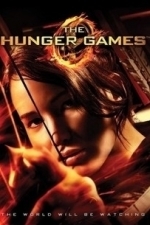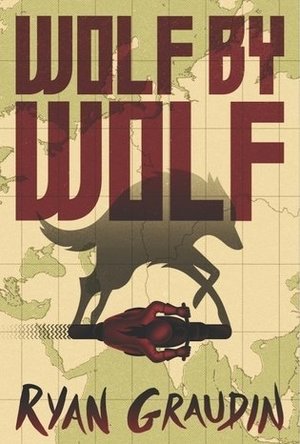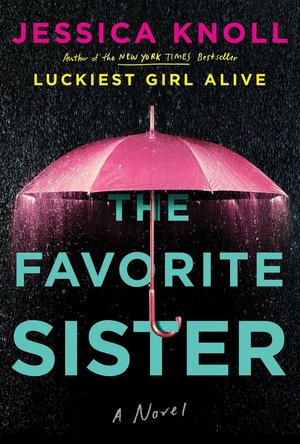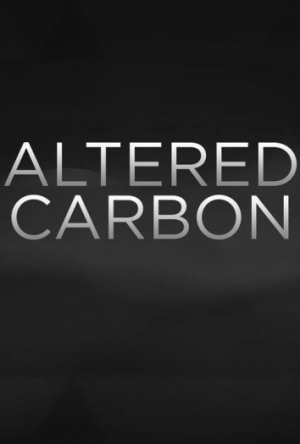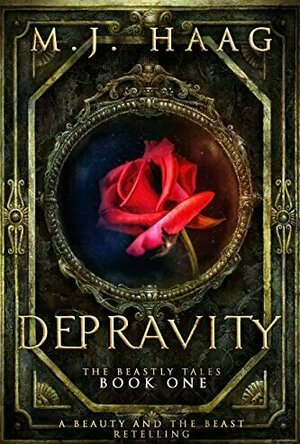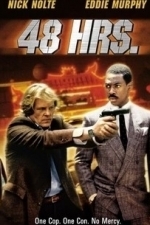Search
Search results
Gareth von Kallenbach (980 KP) rated The Hunger Games (2012) in Movies
Aug 7, 2019
“The Hunger Games” is based in a post-apocalyptic time when the world has been overcome by a series of devastating natural disasters and people have turned on each other to provide supplies for their families and for themselves in order to survive.
Bringing peace to the land was a nation known as Panem which is ruled by the Capitol. Panem had once consisted of thirteen districts all providing a resource essential to the survival of its people. An uprising against the Capitol caused much anger and destruction resulting in war and the annihilation of its thirteenth district.
With the intent to make sure such an uprising would never happen again, the Capitol required each of the twelve remaining districts to abide by the rules and regulations written in the Treaty of Treason to make sure that there is peace within Panem. Once a year a lottery is held where each of the twelve districts must offer up one young man and one young woman as tributes. This must be done in order to remind the people of Panem what was lost. Each of the 24 tributes must train and then battle for survival in an outdoor arena against each other leaving only one tribute to become the victor. This is known as The Hunger Games.
“The Hunger Games” is based upon the New York times best seller written by Suzanne Collins and directed by Gary Ross who also directed Seabiscuit. The storyline follows the main character Katniss Everdeen (Jennifer Lawrence) who volunteers as tribute in order to save her younger sister from having to fight and Peeta Mellark (Josh Hutcheson) has also been randomly chosen as tribute for the twelfth district.
The movie mostly follows these two characters on their journey to the battle ground as opposed to the book where we get a little more background into each of the different districts and their tributes. Who will be the victor of the 74th annual Hunger Games?
Let me start off by stating that you do not need to have read the book in order to enjoy this film. However, the movie does follow the book very well. Fans will always have their own very strong opinions as to whether the films follow their favorite books but for someone who read the book after I watched the movie I must say I was not lost nor did I feel disappointed that I did not read it prior to screening it.
This film includes a great cast such as Stanley Tucci, Wes Bentley, Liam Hemsworth, Elizabeth Banks, Donald Sutherland and a surprisingly effectively-cast Lenny Kravitz. Along with a fitting cast the film also offers a great soundtrack, colors that fit each district and great cinematography.
It is always interesting to hear the comments of the other reviewers after the end of a movie screening. Some commented on how they pictured certain characters as a totally different type of character than what was portrayed in the book such as Cinna played by Lenny Kravitz.
One lady pictured him as a slim Asian man while my guest pictured him as a flamboyant white man with a high fashion sense. Others commented on how shaky the cinematography was. Yes, granted it does get shaky in a lot of the scenes but it only adds action to the heart pounding edge of your seat scenes. This film is a kickstart to the season of great movies to come and I predict “The Hunger Games” will reach a bigger audience as it provides elements of action, drama and sci-fi to satisfy a larger audience.
For those of you who have not read the book I do have to warn you some of the scenes and or elements of the story may be just a little too disturbing for some but is a great story nonetheless.
Bringing peace to the land was a nation known as Panem which is ruled by the Capitol. Panem had once consisted of thirteen districts all providing a resource essential to the survival of its people. An uprising against the Capitol caused much anger and destruction resulting in war and the annihilation of its thirteenth district.
With the intent to make sure such an uprising would never happen again, the Capitol required each of the twelve remaining districts to abide by the rules and regulations written in the Treaty of Treason to make sure that there is peace within Panem. Once a year a lottery is held where each of the twelve districts must offer up one young man and one young woman as tributes. This must be done in order to remind the people of Panem what was lost. Each of the 24 tributes must train and then battle for survival in an outdoor arena against each other leaving only one tribute to become the victor. This is known as The Hunger Games.
“The Hunger Games” is based upon the New York times best seller written by Suzanne Collins and directed by Gary Ross who also directed Seabiscuit. The storyline follows the main character Katniss Everdeen (Jennifer Lawrence) who volunteers as tribute in order to save her younger sister from having to fight and Peeta Mellark (Josh Hutcheson) has also been randomly chosen as tribute for the twelfth district.
The movie mostly follows these two characters on their journey to the battle ground as opposed to the book where we get a little more background into each of the different districts and their tributes. Who will be the victor of the 74th annual Hunger Games?
Let me start off by stating that you do not need to have read the book in order to enjoy this film. However, the movie does follow the book very well. Fans will always have their own very strong opinions as to whether the films follow their favorite books but for someone who read the book after I watched the movie I must say I was not lost nor did I feel disappointed that I did not read it prior to screening it.
This film includes a great cast such as Stanley Tucci, Wes Bentley, Liam Hemsworth, Elizabeth Banks, Donald Sutherland and a surprisingly effectively-cast Lenny Kravitz. Along with a fitting cast the film also offers a great soundtrack, colors that fit each district and great cinematography.
It is always interesting to hear the comments of the other reviewers after the end of a movie screening. Some commented on how they pictured certain characters as a totally different type of character than what was portrayed in the book such as Cinna played by Lenny Kravitz.
One lady pictured him as a slim Asian man while my guest pictured him as a flamboyant white man with a high fashion sense. Others commented on how shaky the cinematography was. Yes, granted it does get shaky in a lot of the scenes but it only adds action to the heart pounding edge of your seat scenes. This film is a kickstart to the season of great movies to come and I predict “The Hunger Games” will reach a bigger audience as it provides elements of action, drama and sci-fi to satisfy a larger audience.
For those of you who have not read the book I do have to warn you some of the scenes and or elements of the story may be just a little too disturbing for some but is a great story nonetheless.
Louise (64 KP) rated Wolf by Wolf (Wolf by Wolf, #1) in Books
Jul 2, 2018
Yael is 5 years old and finds herself a prisoner in a Nazi Concentration camp, she has been specifically selected by a doctor for an experiment. The experiment entails a series of injections every few days - their aim.... to make her blonde haired and blue-eyed (an Aryan). These injections are severe and the weak show signs of fever and for most of them death but not for Yael.
1956 Yael is a member of the resistance, her aim in life is to kill Hitler to make the world a better place. With so many assassination attempts Hitler hardly attends social functions, so it's quite difficult to get near him. The resistance have a plan which involves Yael - she must enter the Axis Motorbike race disguised as another young girl who has once had the pleasure of meeting the Führer - if Yael can win, her life's mission will be complete, However she didn't plan for all the backstabbing and love involved in the race or the hidden secrets which are not on file. For this no training would help her, she has to win.
This is one of those books that explores the topic of Hitler winning the war and how the rest of the world would be effected and what other bizarre theories he comes up with. This also covers another serious topic that I myself did not know about was that people were experimented on in the concentration camps which caused death and disfigurements. Which is absolutely brutal and very hard to read about.
I was umming and ahhing over this book for a while,I heard many great things about it but I still wasn't totally convinced. Was it the fact that this book is based on Hitler winning and carrying on with his reign of terror or was it the motorcycle race? I have never read anything about racing before and it doesn't really appeal to me.However my lesson has been learnt...... I think! Always try to read something out of your comfort zone because you never know you might just end up loving it, which is exactly what happened to me with this book.
I loved this book with a passion, I loved the back stories to the wolves and how they become. The authors writing style was beautiful to read, utterly compelling but also hard due to the content and how realistic it was. This is a book that explores identity and reasons that drive Yael on through her mission. The book does go back and forth from the past and present, which I really enjoyed, I think if the book wasn't written this way it could have dragged a bit. The premise of this book is definitely unique and like nothing I have read before. Ryan Graudin has a novella which is called Iron to Iron which I desperately need to read as I just want more.
I recommend this book to anyone with an interest in historical fiction and young adult.
Overall I rated this book 5 out of 5 stars
1956 Yael is a member of the resistance, her aim in life is to kill Hitler to make the world a better place. With so many assassination attempts Hitler hardly attends social functions, so it's quite difficult to get near him. The resistance have a plan which involves Yael - she must enter the Axis Motorbike race disguised as another young girl who has once had the pleasure of meeting the Führer - if Yael can win, her life's mission will be complete, However she didn't plan for all the backstabbing and love involved in the race or the hidden secrets which are not on file. For this no training would help her, she has to win.
This is one of those books that explores the topic of Hitler winning the war and how the rest of the world would be effected and what other bizarre theories he comes up with. This also covers another serious topic that I myself did not know about was that people were experimented on in the concentration camps which caused death and disfigurements. Which is absolutely brutal and very hard to read about.
I was umming and ahhing over this book for a while,I heard many great things about it but I still wasn't totally convinced. Was it the fact that this book is based on Hitler winning and carrying on with his reign of terror or was it the motorcycle race? I have never read anything about racing before and it doesn't really appeal to me.However my lesson has been learnt...... I think! Always try to read something out of your comfort zone because you never know you might just end up loving it, which is exactly what happened to me with this book.
I loved this book with a passion, I loved the back stories to the wolves and how they become. The authors writing style was beautiful to read, utterly compelling but also hard due to the content and how realistic it was. This is a book that explores identity and reasons that drive Yael on through her mission. The book does go back and forth from the past and present, which I really enjoyed, I think if the book wasn't written this way it could have dragged a bit. The premise of this book is definitely unique and like nothing I have read before. Ryan Graudin has a novella which is called Iron to Iron which I desperately need to read as I just want more.
I recommend this book to anyone with an interest in historical fiction and young adult.
Overall I rated this book 5 out of 5 stars
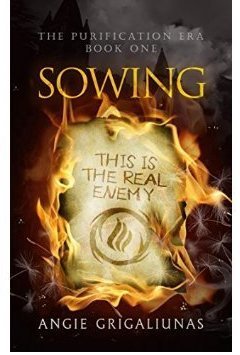
Sowing (The Purification Era Book 1)
Book
They can take your house, your daughter, whatever they want. For Ariliah, life under the...
Fiction Dystopia YA Young Adult Fantasy
Kristy H (1252 KP) rated The Favorite Sister in Books
Mar 10, 2019
Fell flat for me
The reality TV show Goal Diggers is supposed to buck the trend of most reality TV, with a focus on the radical notion that it is about women putting other women first. It even features unmarried, childless (for the most part), successful women. But, is that really the case? It sure seems like everyone on Diggers is fake and lying. There's Brett, 27, the youngest of the group, who is running her business, SPOKE, which focuses on helping women in Morocco. Her sister, Kelly is the newest addition, and she runs the business with Brett and is a mom to her teenage daughter, Layla. There's also Jen, who oversees her vegan empire; Lauren, creator of a dating website; and Stephanie, a successful author. None of these women really like each other after several seasons of the show. Even so, the producers never expected it all to end in murder.
I have some conflicted and confused emotions about this book. It took me over a week to read, which is forever in my world (I finished three other books in the meantime, to put it in perspective). You know how your Kindle tells you the percentage left to read? I swear that number never changed, it felt like such slow going, and I considered giving up several times. I really only kept reading because of a big reveal that happened on page one (literally) and then the rest of the book spends its time going back in time explaining what happened. I was mildly curious enough to find out what went down. The novel keeps you wondering just enough even if you don't like the characters.
Because, wow, these characters are really despicable. I can get past it in most books, and I thought maybe I'd like Brett for a while, but this self-centered group really took the cake. I am not a reality TV person, especially Real Housewives, so maybe that's part of why this one wasn't for me? I found the in-fighting, petty catfights, and personal drama to just be over-the-top. It's sad, because at times, I found a real wit and depth to the book, but for the most part it just dragged on. And on.
And again, some of this just may be because I'm not a reality TV gal. I really like Knoll's writing, I just couldn't get a handle on the tone. Funny? Serious? Both? What was it aiming for? Did it all just go over my head? I caught that it was trying for some really meaningful social commentary about feminism, weight, race, and so much more, but then it would get lost in two women fighting over platform heels.
There were some good twists at the end, but overall, this one fell flat for me, including the final ending. I felt like I slogged through it, and I just didn't enjoy the characters. Perhaps I missed the overall point or meaning. Many others have enjoyed it, so you may find it's more suited for you than it was for me.
I received a copy of this novel from the publisher and Edelweiss in return for an unbiased review (thank you!).
I have some conflicted and confused emotions about this book. It took me over a week to read, which is forever in my world (I finished three other books in the meantime, to put it in perspective). You know how your Kindle tells you the percentage left to read? I swear that number never changed, it felt like such slow going, and I considered giving up several times. I really only kept reading because of a big reveal that happened on page one (literally) and then the rest of the book spends its time going back in time explaining what happened. I was mildly curious enough to find out what went down. The novel keeps you wondering just enough even if you don't like the characters.
Because, wow, these characters are really despicable. I can get past it in most books, and I thought maybe I'd like Brett for a while, but this self-centered group really took the cake. I am not a reality TV person, especially Real Housewives, so maybe that's part of why this one wasn't for me? I found the in-fighting, petty catfights, and personal drama to just be over-the-top. It's sad, because at times, I found a real wit and depth to the book, but for the most part it just dragged on. And on.
And again, some of this just may be because I'm not a reality TV gal. I really like Knoll's writing, I just couldn't get a handle on the tone. Funny? Serious? Both? What was it aiming for? Did it all just go over my head? I caught that it was trying for some really meaningful social commentary about feminism, weight, race, and so much more, but then it would get lost in two women fighting over platform heels.
There were some good twists at the end, but overall, this one fell flat for me, including the final ending. I felt like I slogged through it, and I just didn't enjoy the characters. Perhaps I missed the overall point or meaning. Many others have enjoyed it, so you may find it's more suited for you than it was for me.
I received a copy of this novel from the publisher and Edelweiss in return for an unbiased review (thank you!).
Steph Freeman (26 KP) rated Altered Carbon in TV
Feb 19, 2018
Excellent character development (2 more)
Phenomenal special effects
Edge of your seat action throughout the plot line, never felt the story lagging.
Phenomenal Show
Contains spoilers, click to show
In this age of technology I am rarely singularly glued to the television when a show is playing; I'm playing Candy Crush, surfing Etsy, creating new glassware designs... From the moment Takeshi Kovacs is apprehended from the Protectorate until the very last scene of the series this show had me glued to the screen. It combines the "locked room" mystery Agatha Christie made famous with a sci-fi Game of Thrones feel that evokes the Red Rising trilogy sense of Golds vs. Reds.
The lack of regard for anyone below them (literally as well as figuratively) makes it easy to hate the Meths and the decadence that surrounds them. Their wealth allows a god-like immortality, and a lack of respect for life and "real death". Kovacs was detained for crimes against the Protectorate and his stack placed "on ice" for 250 years until the meth Laurens Bancroft pays for his release and a new skin. As Kovacs accepts the offer to find Bancrofts murder, and as he searches for the killer he finds friendship in an AI Edgar Allen Poe (one of the best characters in the whole show), a former military drunk and his wife and daughter, who is damaged emotionally trapped in virtual life, and a police officer. There are also several people after Elias Ryker (a police officer who was a little too curious), which causes issue for Kovacs because that is the skin Bancroft selected when he was taken off ice.
The locked room mystery portion of the season ends in episode 7, but that is far from the end of the action. As we learn more about Kovacs' history his interest in the Envoy mission of recapturing humanity and forcing real death on the world is made more evident, as is his love for Quell. His sister, Rei, did not believe in the mission as much as spending eternity with her big brother. While Kovacs was on ice his sister built a meth empire, acquiring wealth and power, becoming everything Quell and Kovacs fought against. The final moments with his sister, and his decision to find Quell's stack were gripping.
The cinematography, costuming, and CGI in this show are phenomenal, and the attention to detail is obvious. As Netflix is transitioning to big budget productions it's clear they have the right people handling the decisions. I didn't realize this series was also a book trilogy written by Richard Morgan, this series has definitely peaked my interest and I will be reading the books before the next season drops.
The lack of regard for anyone below them (literally as well as figuratively) makes it easy to hate the Meths and the decadence that surrounds them. Their wealth allows a god-like immortality, and a lack of respect for life and "real death". Kovacs was detained for crimes against the Protectorate and his stack placed "on ice" for 250 years until the meth Laurens Bancroft pays for his release and a new skin. As Kovacs accepts the offer to find Bancrofts murder, and as he searches for the killer he finds friendship in an AI Edgar Allen Poe (one of the best characters in the whole show), a former military drunk and his wife and daughter, who is damaged emotionally trapped in virtual life, and a police officer. There are also several people after Elias Ryker (a police officer who was a little too curious), which causes issue for Kovacs because that is the skin Bancroft selected when he was taken off ice.
The locked room mystery portion of the season ends in episode 7, but that is far from the end of the action. As we learn more about Kovacs' history his interest in the Envoy mission of recapturing humanity and forcing real death on the world is made more evident, as is his love for Quell. His sister, Rei, did not believe in the mission as much as spending eternity with her big brother. While Kovacs was on ice his sister built a meth empire, acquiring wealth and power, becoming everything Quell and Kovacs fought against. The final moments with his sister, and his decision to find Quell's stack were gripping.
The cinematography, costuming, and CGI in this show are phenomenal, and the attention to detail is obvious. As Netflix is transitioning to big budget productions it's clear they have the right people handling the decisions. I didn't realize this series was also a book trilogy written by Richard Morgan, this series has definitely peaked my interest and I will be reading the books before the next season drops.
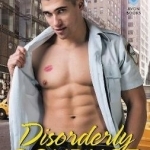
Disorderly Conduct: The Academy
Book
You don't know what you've got until it's gone...Police academy cadet Charlie Burns can't believe...

Hakuoki: Premium Edition
Games
App
Hakuoki: Premium Edition “Hakuoki”, the otome game that gained popularity not only in Japan but...
ArecRain (8 KP) rated Depravity (Beastly Tales, #1) in Books
Jan 18, 2018
First off, let me say how furious I am that this is a three part series with each novel ending in a cliff hanger. Each novel has enough meat to it to count as individual novel, but they all end in maddening cliffhangers. I loathe cliff hangers more than I loathe serials.
That being said, this series had me from page one and I couldnt put it down until the very last one. I missed a lot of sleep for it I am a huge fan of fairy tale retellings, especially if there erotica involved. This is definitely one of the better retellings of Beauty and the Beast, albeit a very dark one. The female lead is almost raped more times than I can count, abused by her obnoxious sisters, manipulated by an arrogant sorceress, and subjected to dealing with a short tempered man child stuck in a beasts body. Through it all, Benella stays determined and loved her grit.
There are some themes that may not sit well with some people, especially with the Beasts treatment of Benella in the second novel. I think they are missing the point of this story, however. The premise is not just about looking beyond aesthetic value, it is about personal growth. While it is the Beautys purpose to look beyond outer appearances to appreciate what people have on the inside; it is the Beasts role to develop from well a beast to a better person. I feel that most people look past that.
This is a great series for those looking for an adult retelling of Beauty and the Beast and can handle the dark themes and cliff hangers that come with it. If you can accept an anti-hero with faults who falls for a strong woman who can hold her own in a hateful sexist world, then this is definitely the series for you.
That being said, this series had me from page one and I couldnt put it down until the very last one. I missed a lot of sleep for it I am a huge fan of fairy tale retellings, especially if there erotica involved. This is definitely one of the better retellings of Beauty and the Beast, albeit a very dark one. The female lead is almost raped more times than I can count, abused by her obnoxious sisters, manipulated by an arrogant sorceress, and subjected to dealing with a short tempered man child stuck in a beasts body. Through it all, Benella stays determined and loved her grit.
There are some themes that may not sit well with some people, especially with the Beasts treatment of Benella in the second novel. I think they are missing the point of this story, however. The premise is not just about looking beyond aesthetic value, it is about personal growth. While it is the Beautys purpose to look beyond outer appearances to appreciate what people have on the inside; it is the Beasts role to develop from well a beast to a better person. I feel that most people look past that.
This is a great series for those looking for an adult retelling of Beauty and the Beast and can handle the dark themes and cliff hangers that come with it. If you can accept an anti-hero with faults who falls for a strong woman who can hold her own in a hateful sexist world, then this is definitely the series for you.
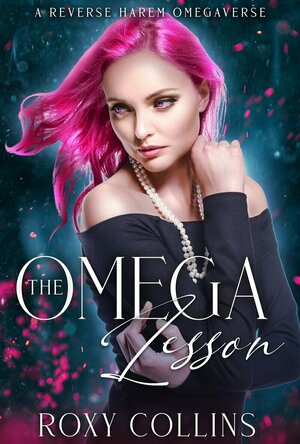
The Omega Lesson (Billionaires in Heat #2)
Book
Alphas don't have heats. Except when I "switch" to omega at an all-male alpha academy. Alphas are...
Reverse Harem Omegaverse Paranormal Romance Why Choose? Billionaires
Darren (1599 KP) rated 48 HRS (1982) in Movies
Jun 20, 2019
Story: 48 Hrs starts as Ganz (Remar) gets broken out of jail while on work detail by Billy Bear (Landham), he heads off to clean up old debts leaving cops bodies in his path of destruction. It doesn’t take long for Ganz to clash with detective Jack Cates (Nolte), where Ganz forces Jack into a difficult situation.
Jack must go to prisoner Reggie Hammond (Murphy) a wise cracking con man to help track down Ganz using his street knowledge. In what is an unlikely partnership turns into something special as the two find a way to get to the bottom of the crime.
Thoughts on 48 Hrs
Characters – Jack Cates is a grizzled cop, he gets the job done with his experience keeping him in high regard. He must stop the killer using criminal Reggie Hammond as the best chance to catch this killer. Reggie Hammond is a criminal near the end of his stint in jail, he is wise-cracking fast-talking meaning he can bullshit his way out of any situation he finds himself in. He uses this chance of time out of jail to settle a few scores. Elaine is the girlfriend of Jack who is tired of not making things serious between the two. Ganz is the killer on the loose, after his break from prison, he has a short-temper which causes his itchy trigger finger to fire on any enemy he comes across.
Performances – Nick Nolte is a great choice for a seemingly warn down cop, he takes the non-sense style needed for the role and goes with it. Eddie Murphy was one of the most popular stand-up comedians at the time, this was his film debut and he handed it very well, bringing his own energy to the role which could have been something we have seen before. James Remar is good as a villain because it is a character we have seen before, but he really convinces in this role. There is a negative here, that is Annette O’Toole, which to be fair isn’t her fault because the character is written so poorly
Story – The story follows a cop and a criminal work together to stop another criminal, yes this is a buddy cop movie. We have unlikely partnership which must work together to get the common goal. This is a story we have seen plenty of times since and it seems to be a hit or miss through the years, but this does keep things simple enough to enjoy not looking to throw us any surprises along the way.
Action/Crime/Comedy – The action is by the book for cops and criminals, nothing is over the top and mostly comes off like you would expect. The crime world is the cop needing to work with the criminal that is the best chance to catch a cop killer. The comedy comes from the odd pairing that must work together.
Settings – The film is set in San Francisco which always seems to be a great location for any crime comedy world to unfold.
Scene of the Movie – Settle this with fists.
That Moment That Annoyed Me – Ganz seems a lot easier to catch.
Final Thoughts – This is a good buddy comedy that bought us Eddie Murphy to the big screen. We get the action and comedy without being buried with one too often and most importantly we are entertained.
Overall: Great fun action comedy.
https://moviesreview101.com/2018/05/26/franchise-weekend-48-hrs-1982/
Jack must go to prisoner Reggie Hammond (Murphy) a wise cracking con man to help track down Ganz using his street knowledge. In what is an unlikely partnership turns into something special as the two find a way to get to the bottom of the crime.
Thoughts on 48 Hrs
Characters – Jack Cates is a grizzled cop, he gets the job done with his experience keeping him in high regard. He must stop the killer using criminal Reggie Hammond as the best chance to catch this killer. Reggie Hammond is a criminal near the end of his stint in jail, he is wise-cracking fast-talking meaning he can bullshit his way out of any situation he finds himself in. He uses this chance of time out of jail to settle a few scores. Elaine is the girlfriend of Jack who is tired of not making things serious between the two. Ganz is the killer on the loose, after his break from prison, he has a short-temper which causes his itchy trigger finger to fire on any enemy he comes across.
Performances – Nick Nolte is a great choice for a seemingly warn down cop, he takes the non-sense style needed for the role and goes with it. Eddie Murphy was one of the most popular stand-up comedians at the time, this was his film debut and he handed it very well, bringing his own energy to the role which could have been something we have seen before. James Remar is good as a villain because it is a character we have seen before, but he really convinces in this role. There is a negative here, that is Annette O’Toole, which to be fair isn’t her fault because the character is written so poorly
Story – The story follows a cop and a criminal work together to stop another criminal, yes this is a buddy cop movie. We have unlikely partnership which must work together to get the common goal. This is a story we have seen plenty of times since and it seems to be a hit or miss through the years, but this does keep things simple enough to enjoy not looking to throw us any surprises along the way.
Action/Crime/Comedy – The action is by the book for cops and criminals, nothing is over the top and mostly comes off like you would expect. The crime world is the cop needing to work with the criminal that is the best chance to catch a cop killer. The comedy comes from the odd pairing that must work together.
Settings – The film is set in San Francisco which always seems to be a great location for any crime comedy world to unfold.
Scene of the Movie – Settle this with fists.
That Moment That Annoyed Me – Ganz seems a lot easier to catch.
Final Thoughts – This is a good buddy comedy that bought us Eddie Murphy to the big screen. We get the action and comedy without being buried with one too often and most importantly we are entertained.
Overall: Great fun action comedy.
https://moviesreview101.com/2018/05/26/franchise-weekend-48-hrs-1982/
